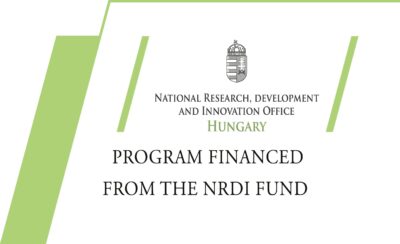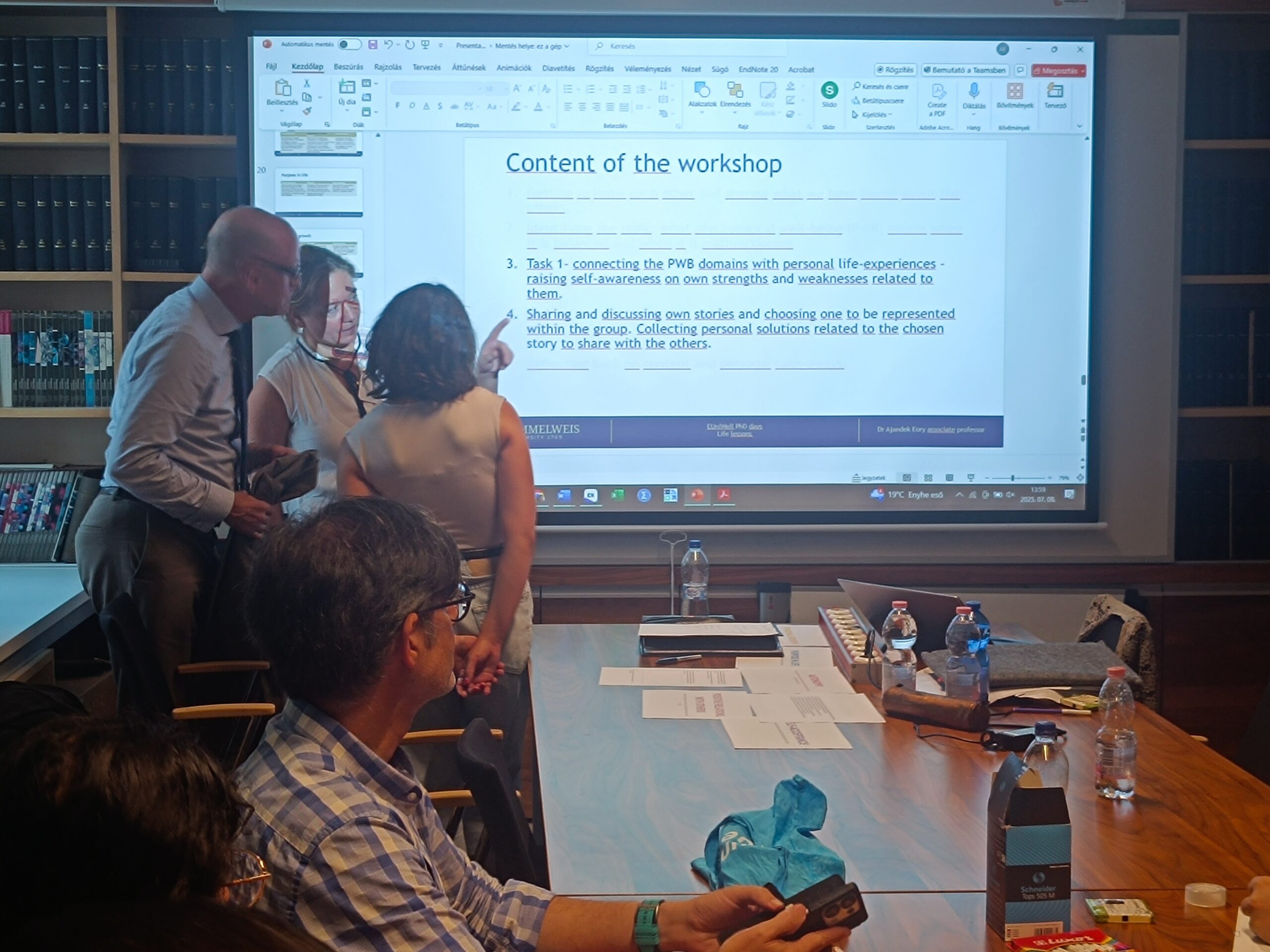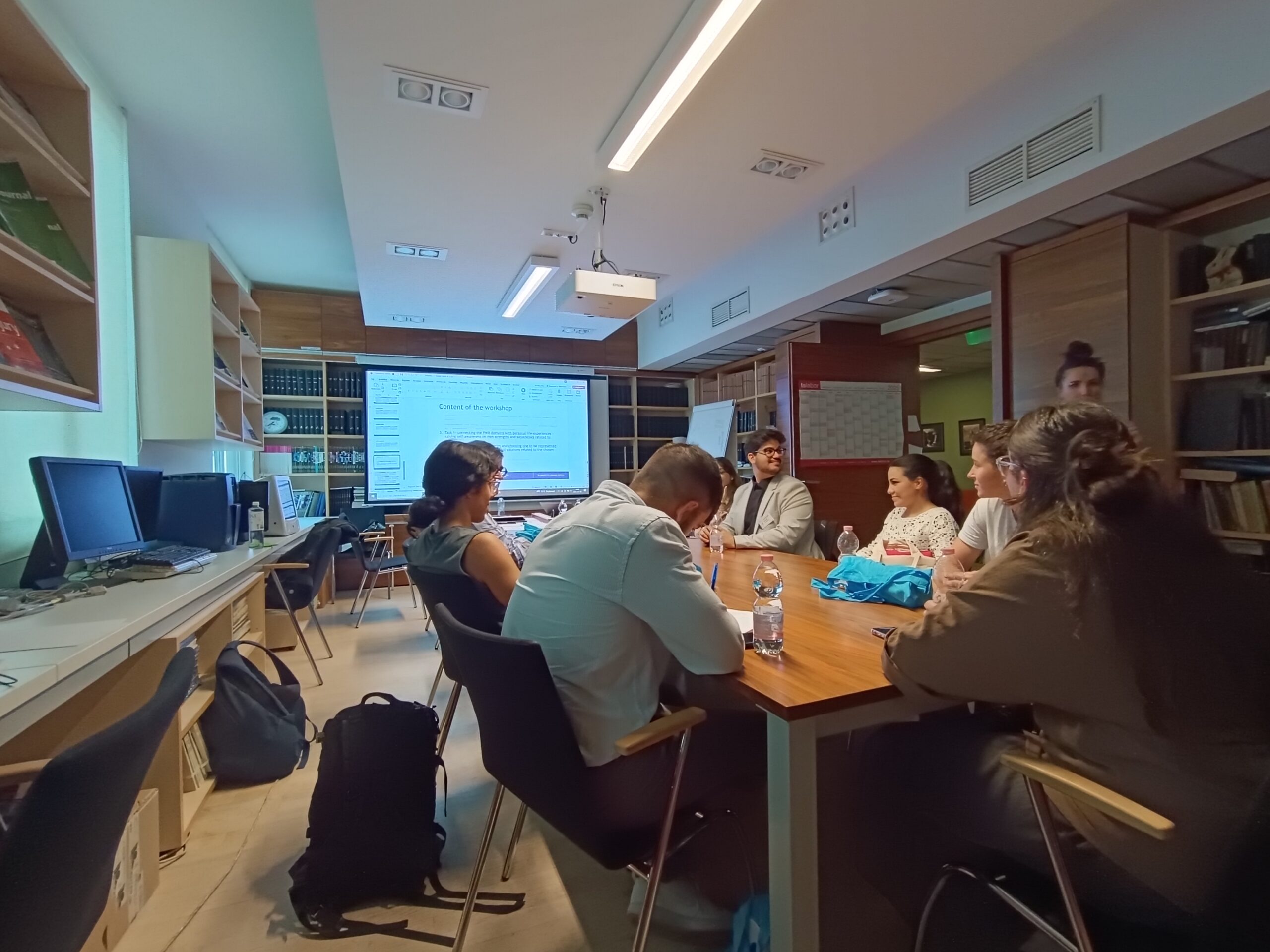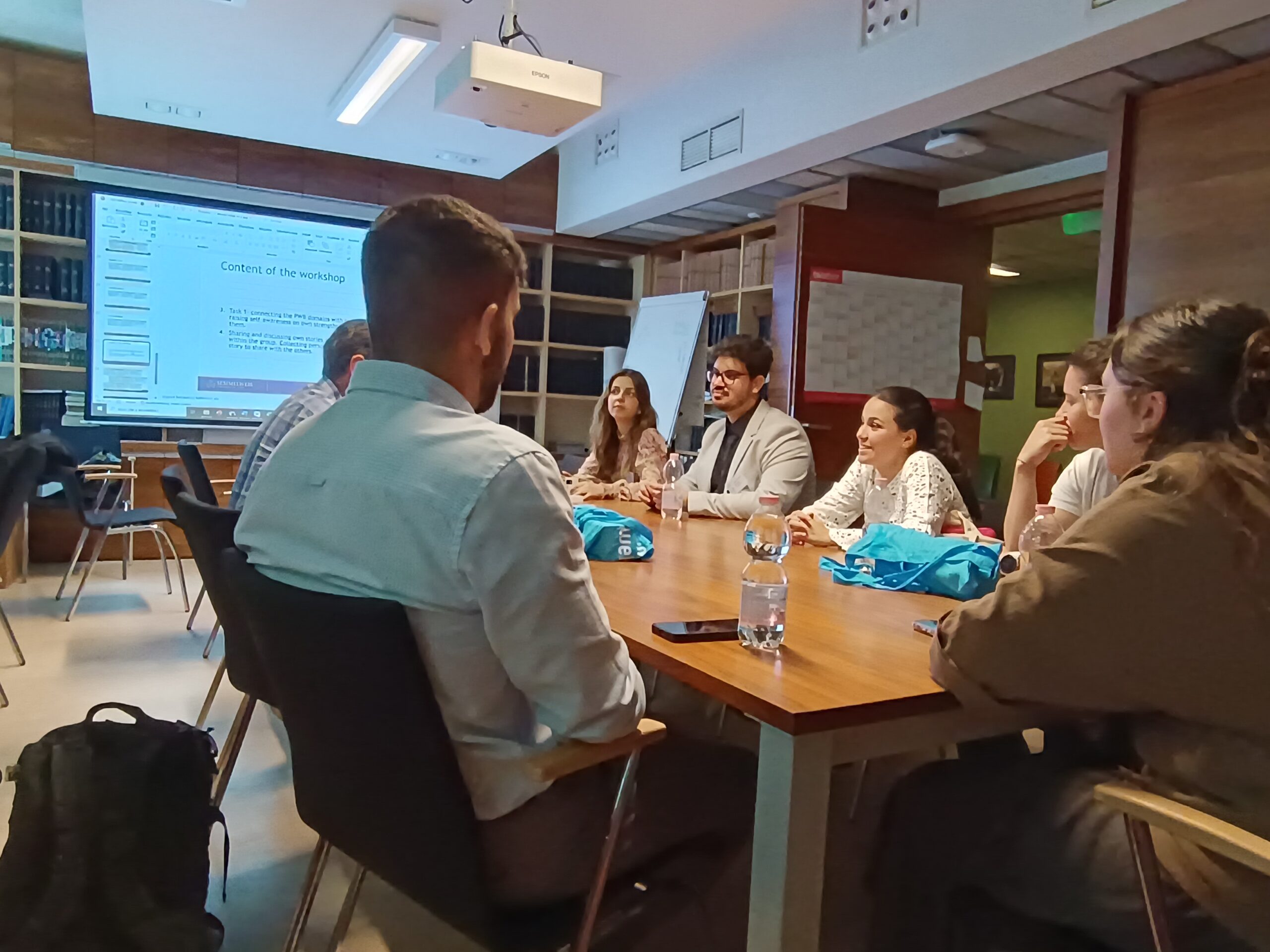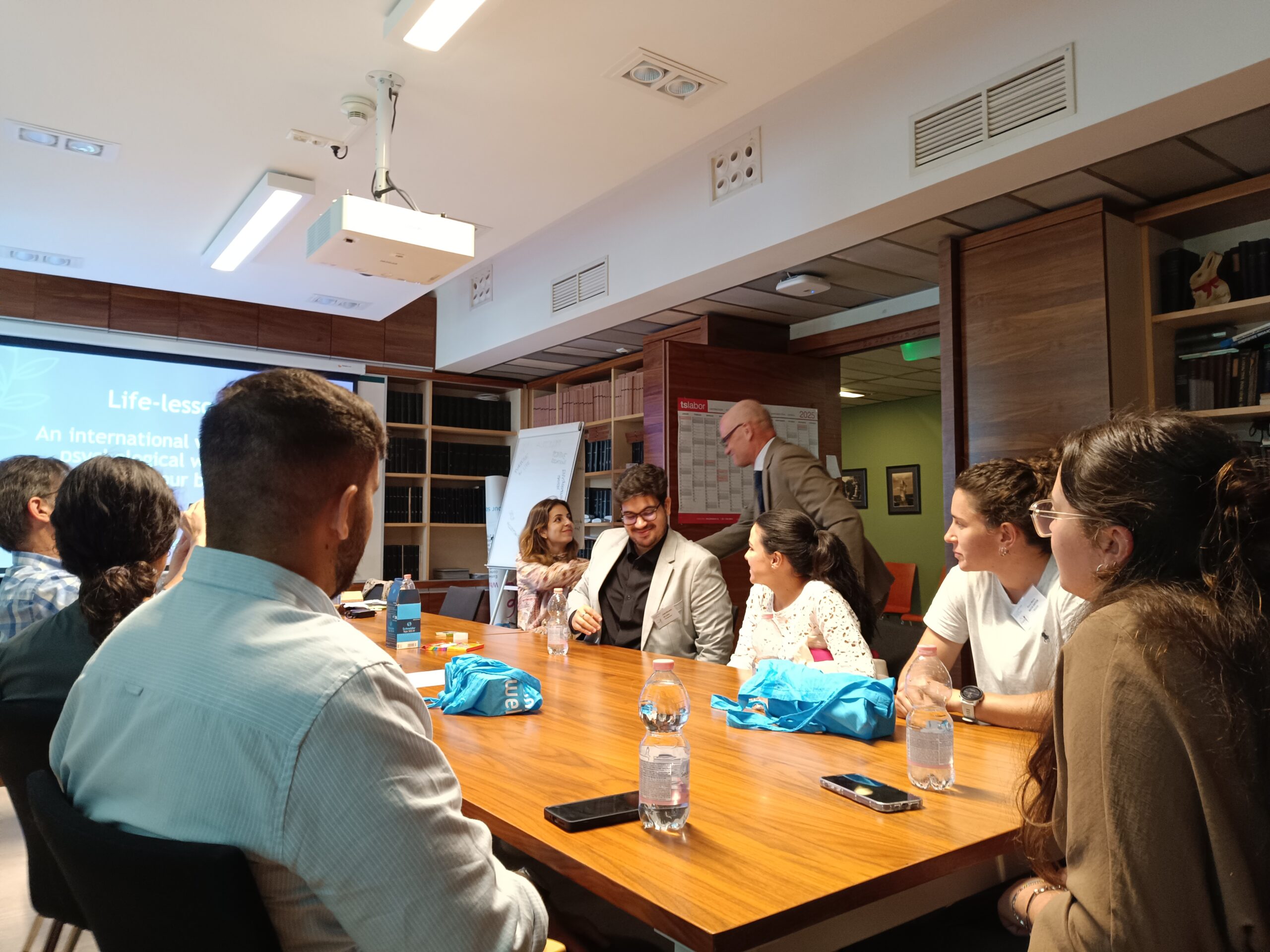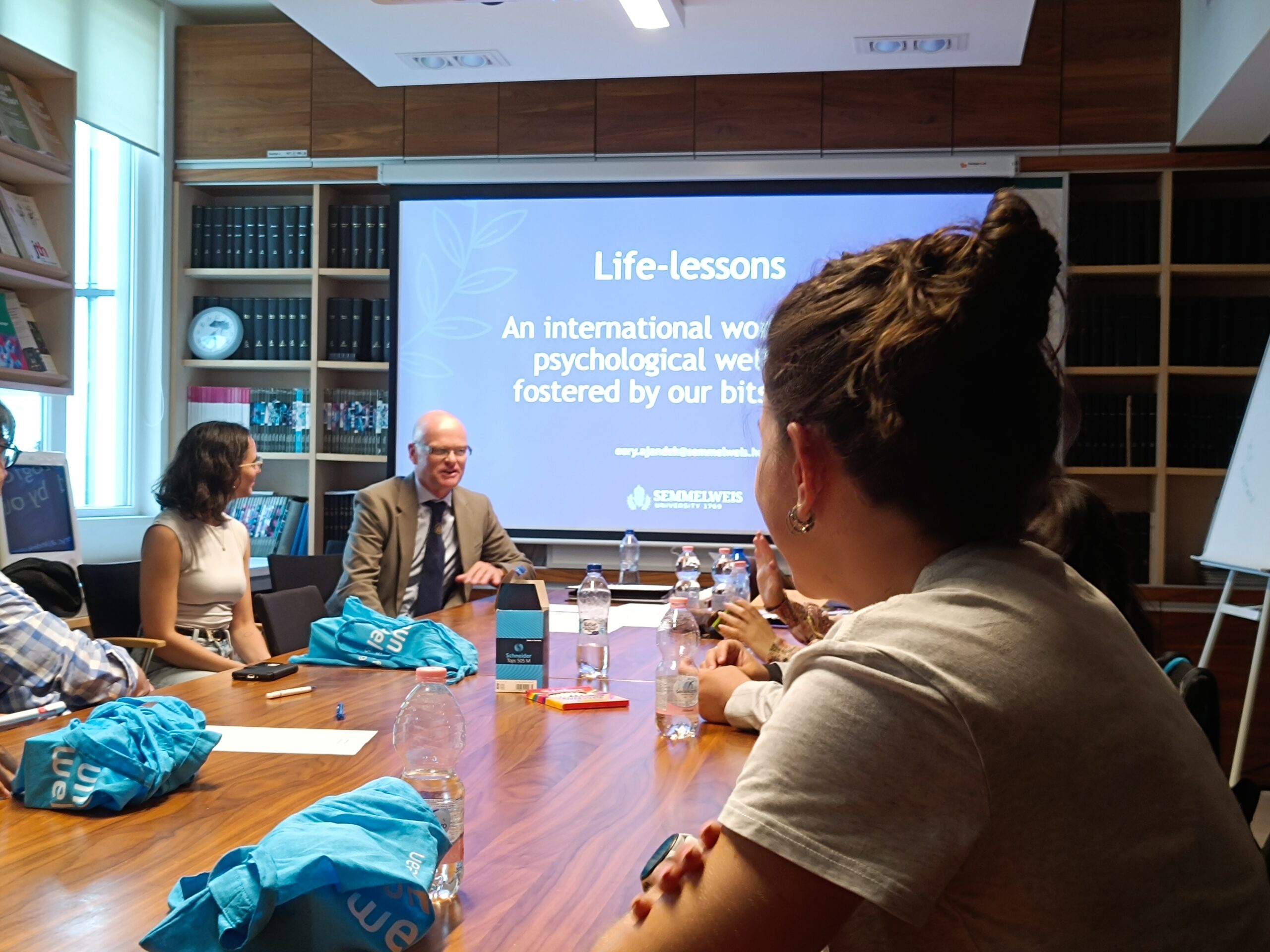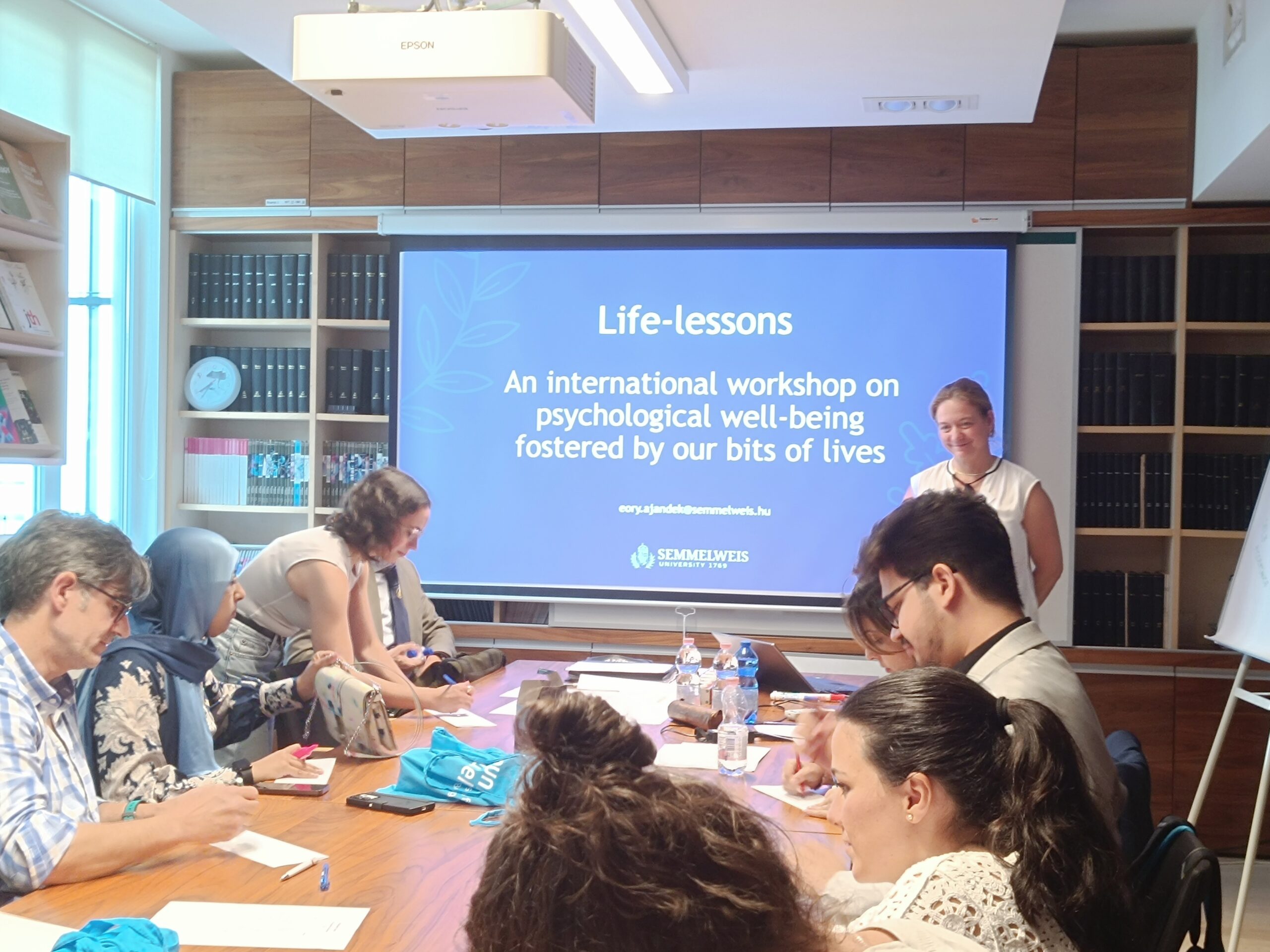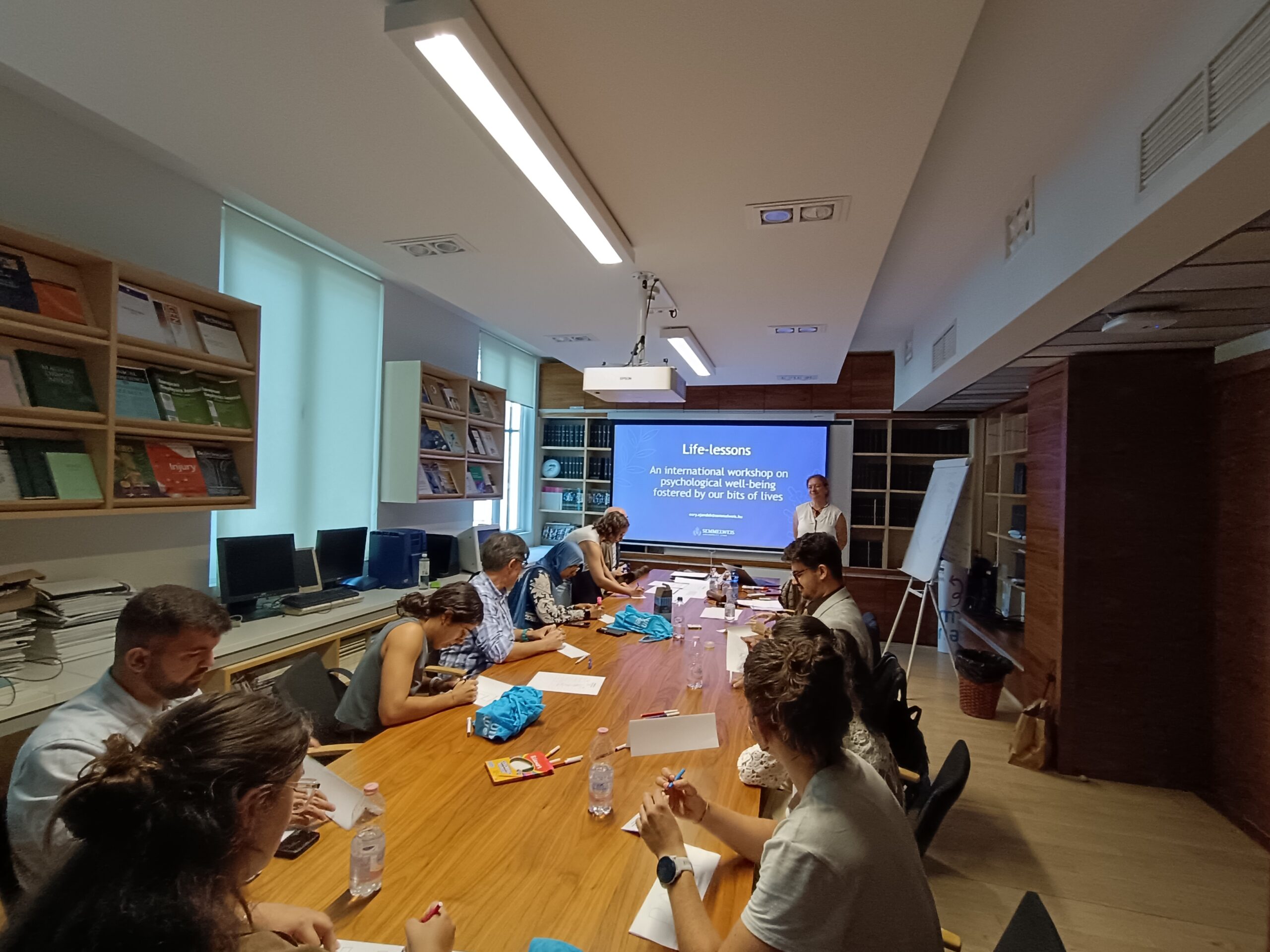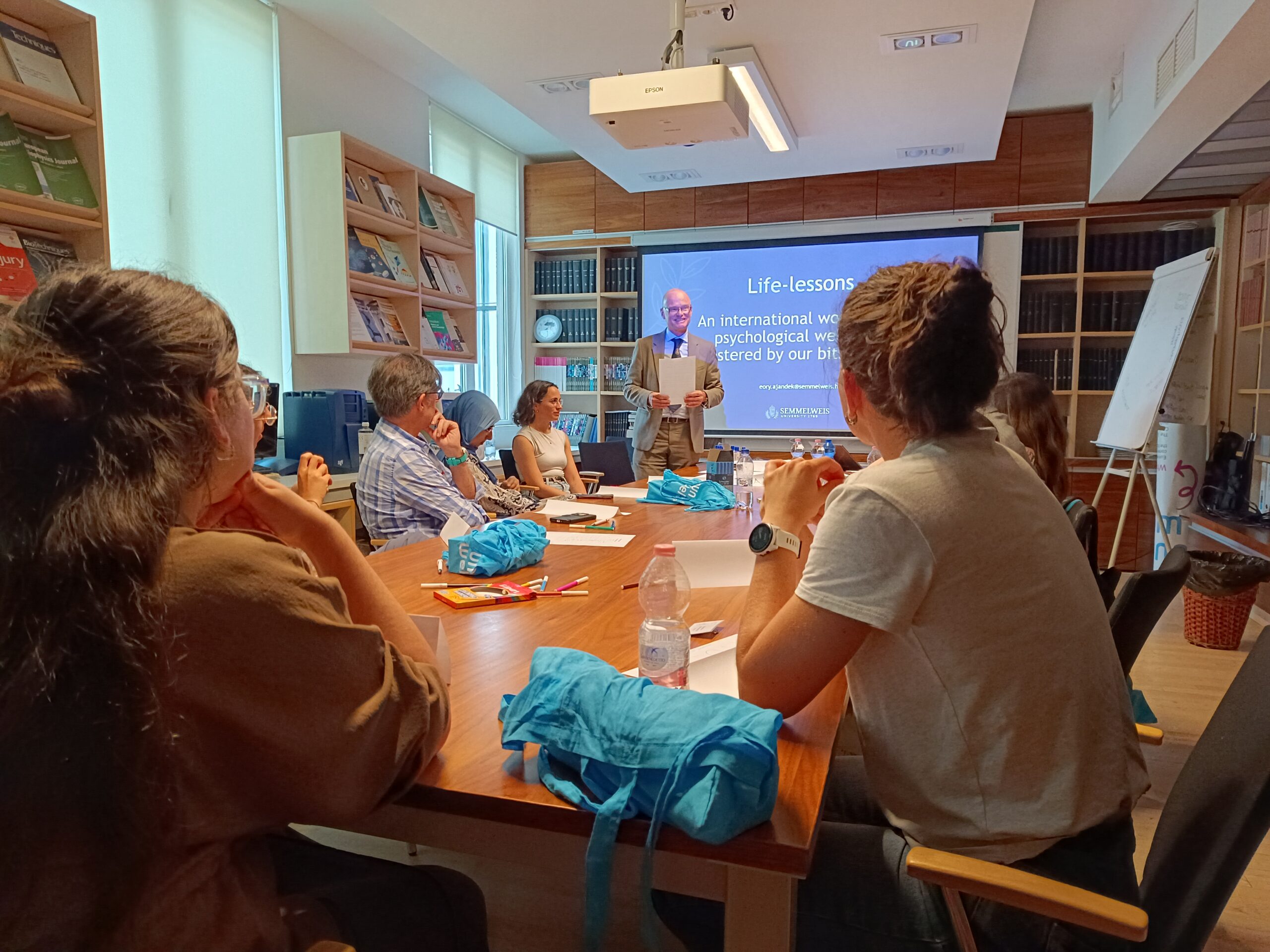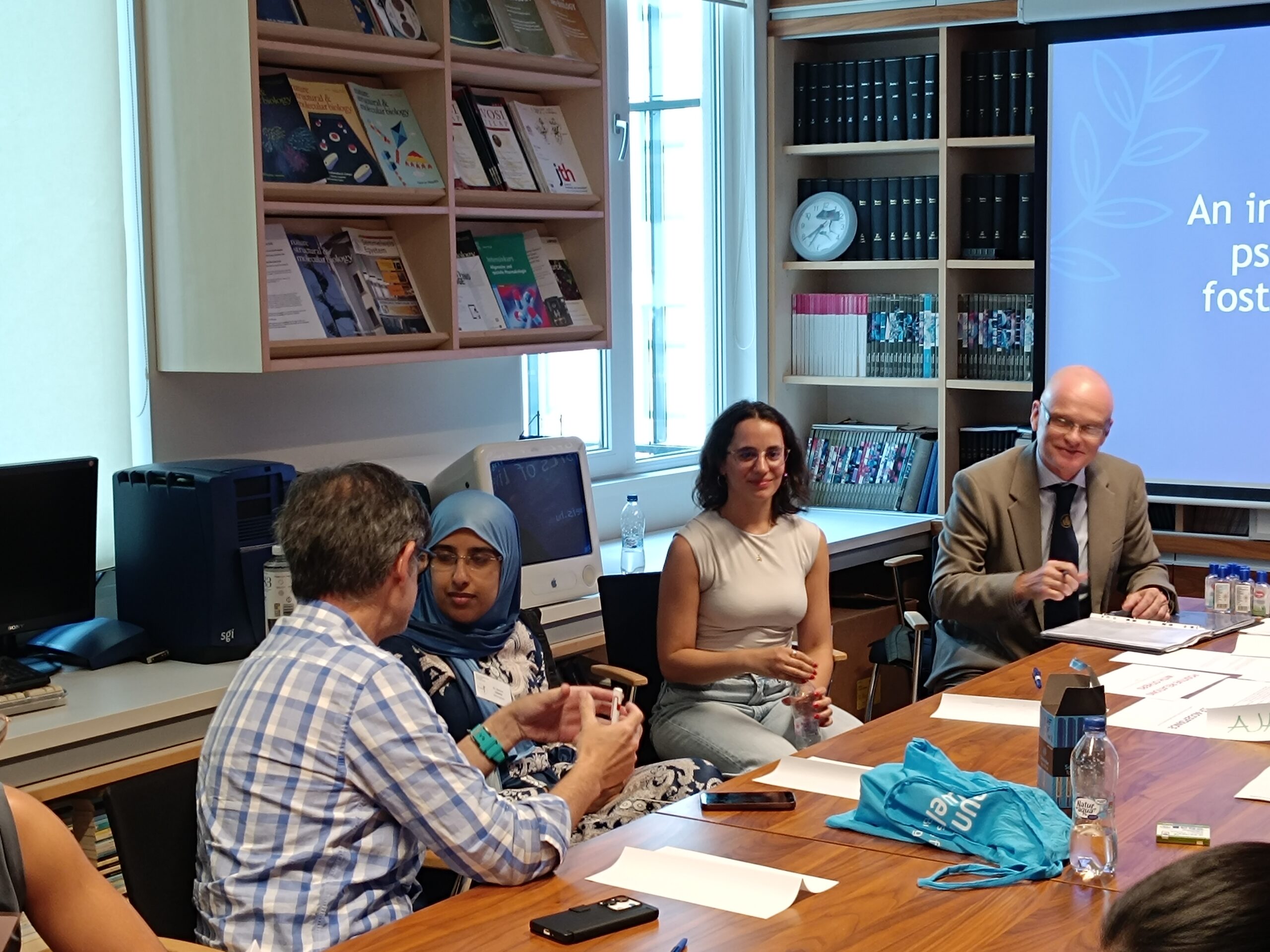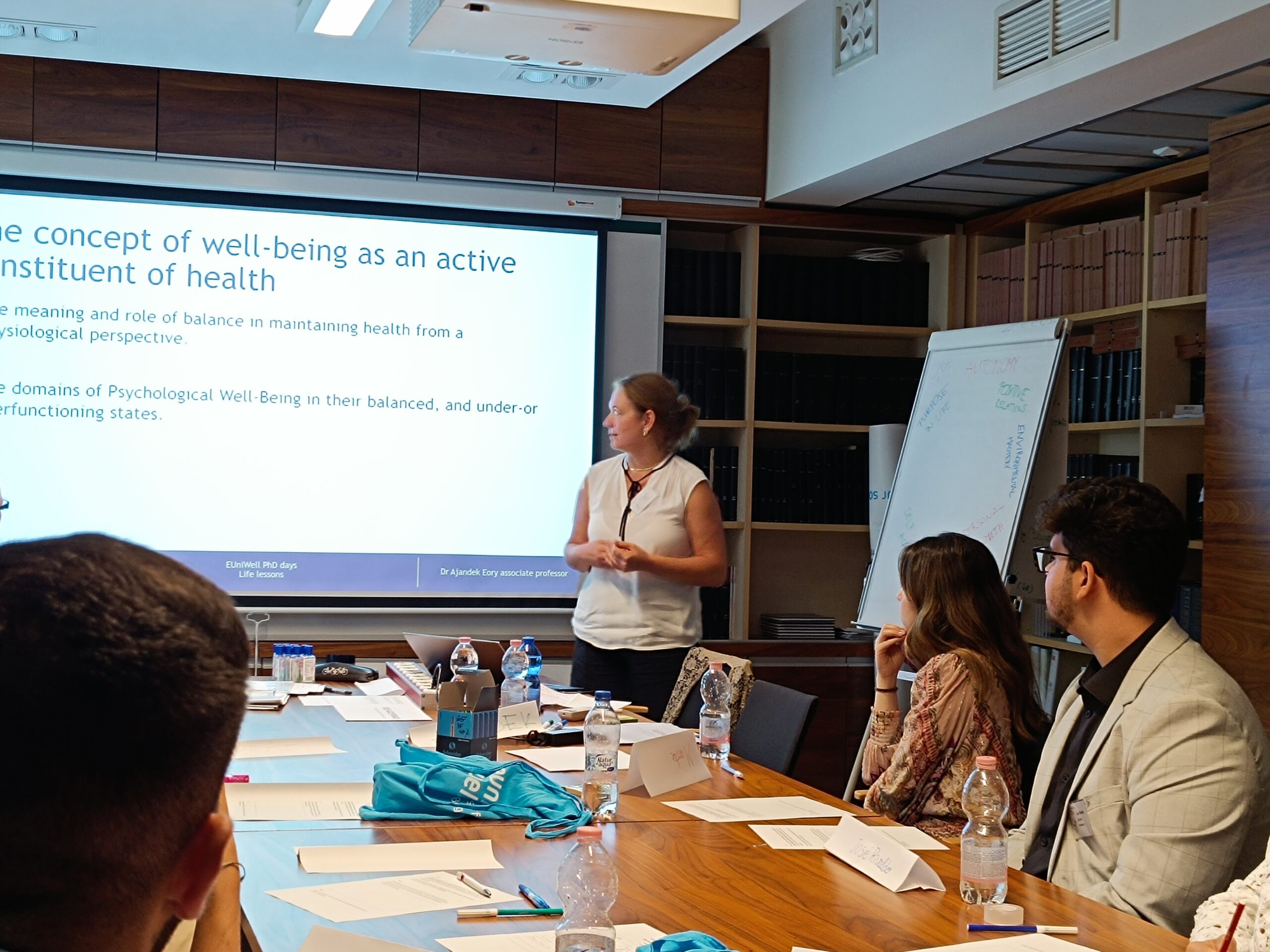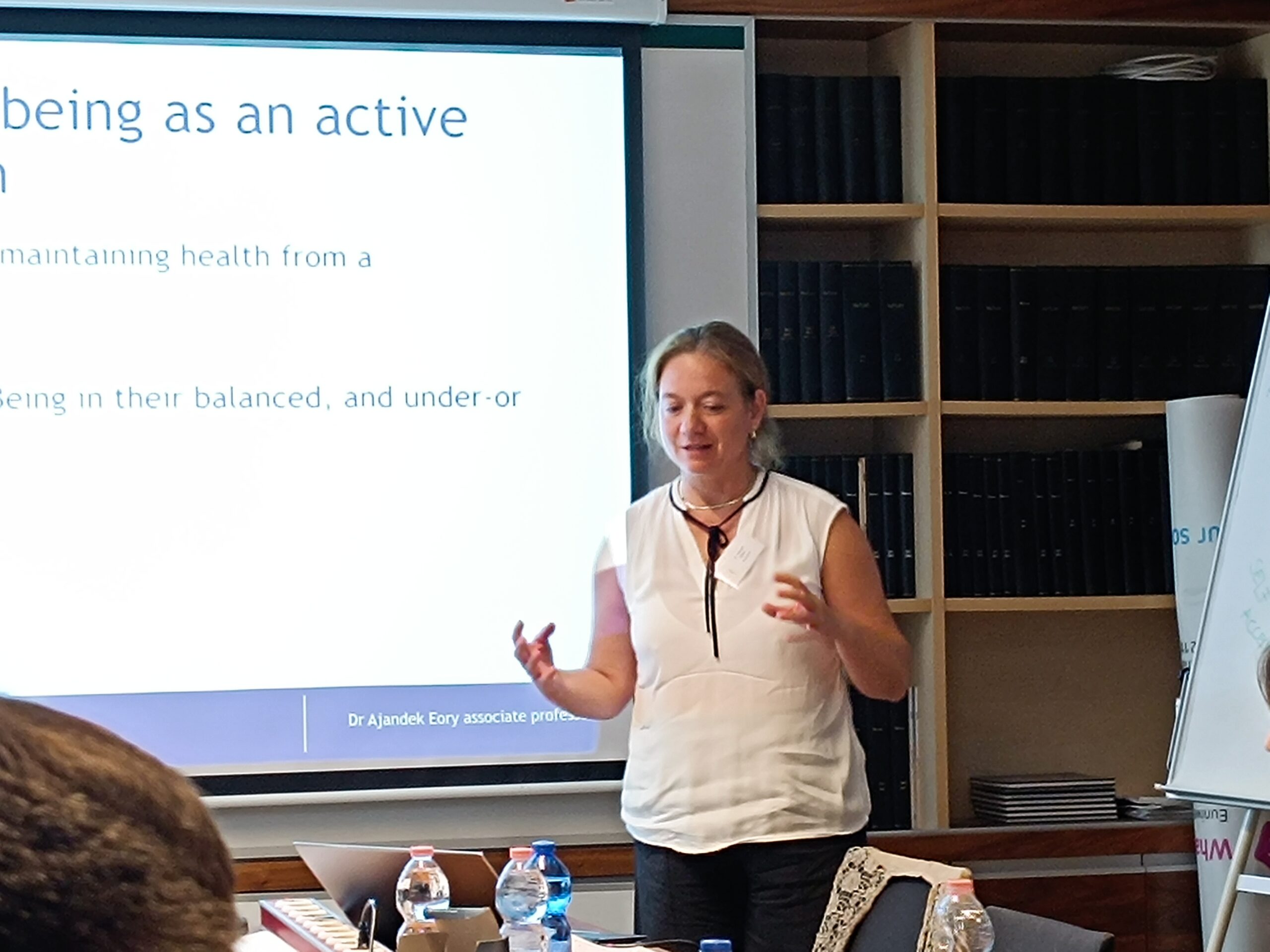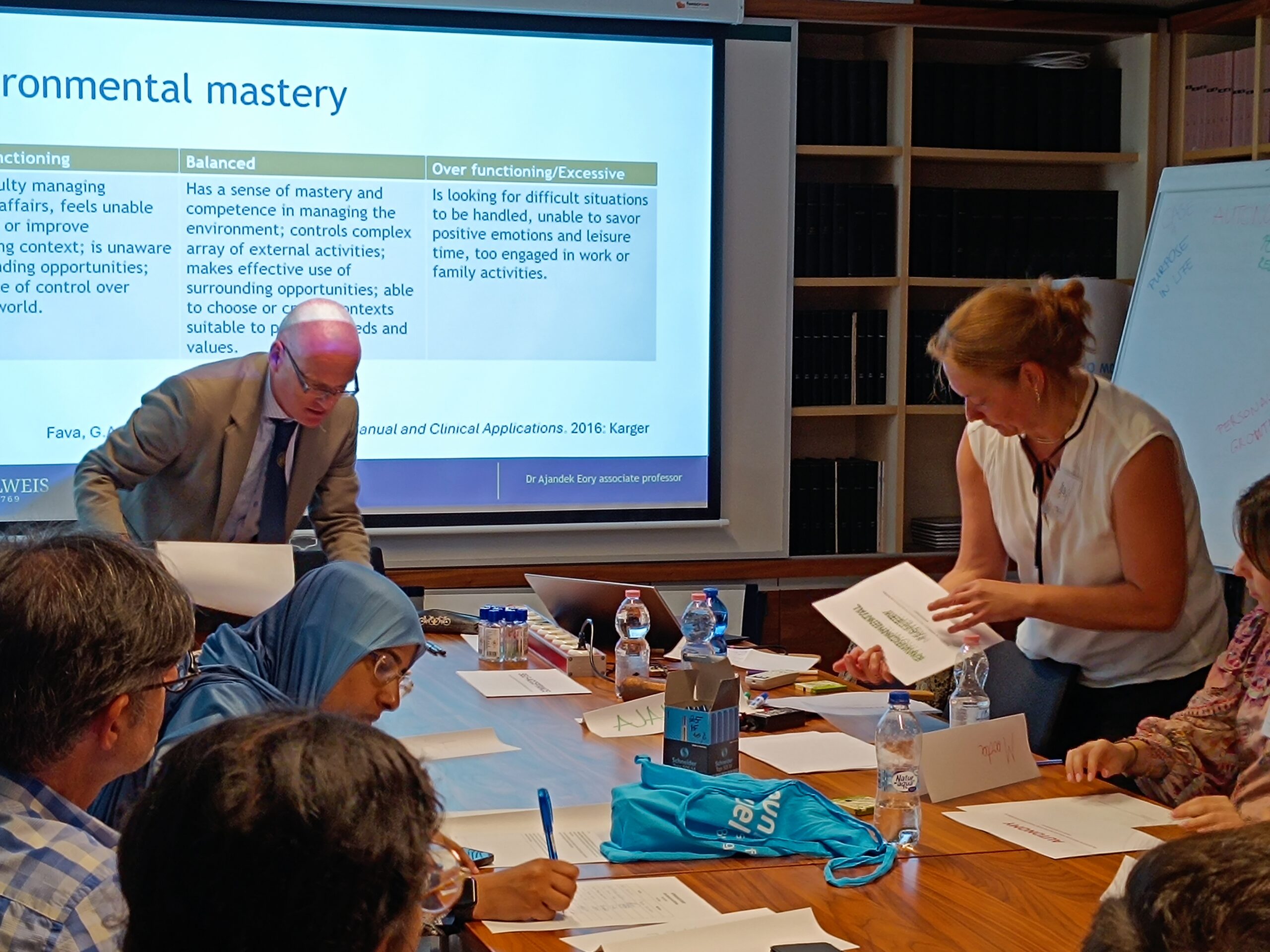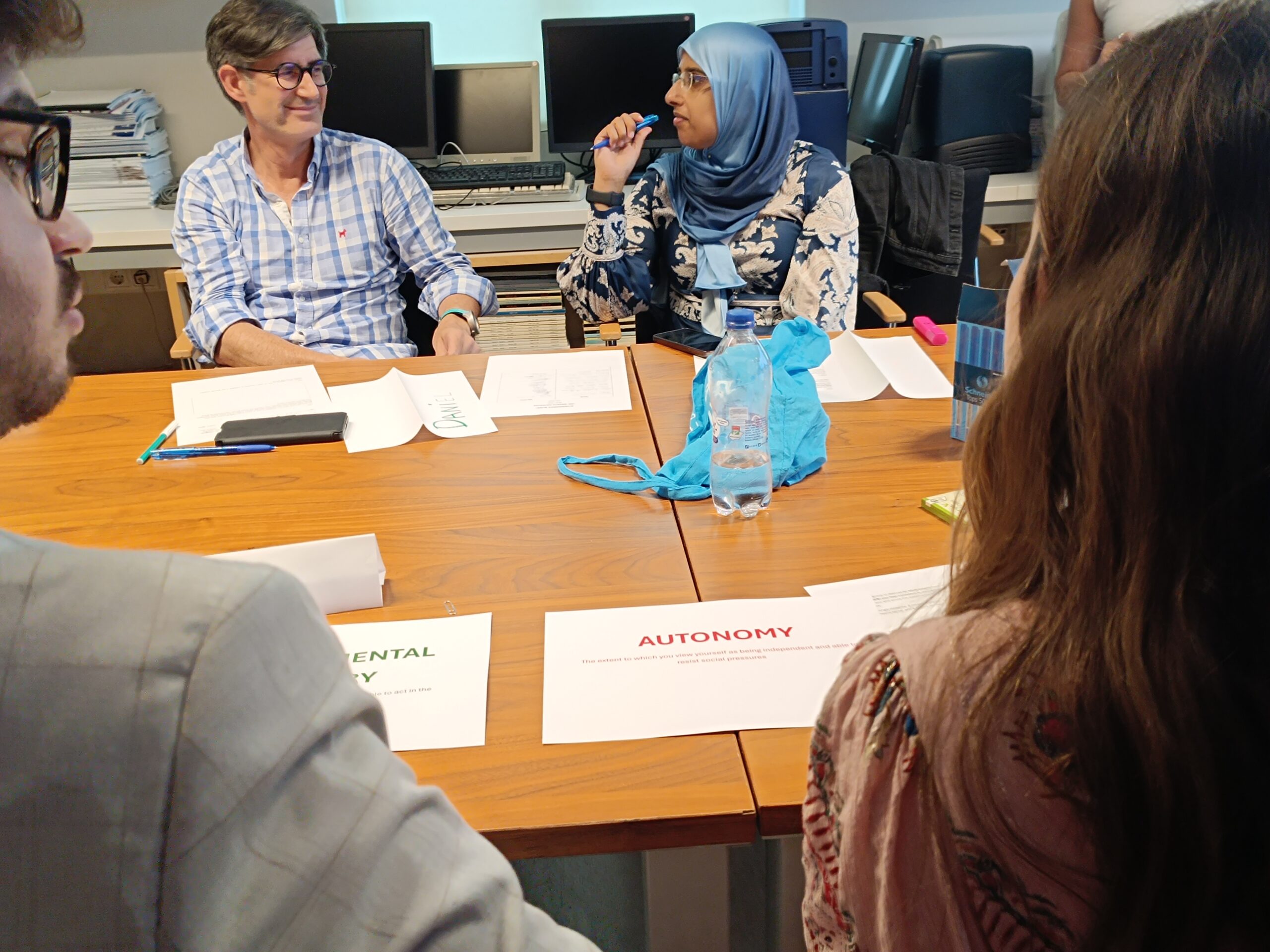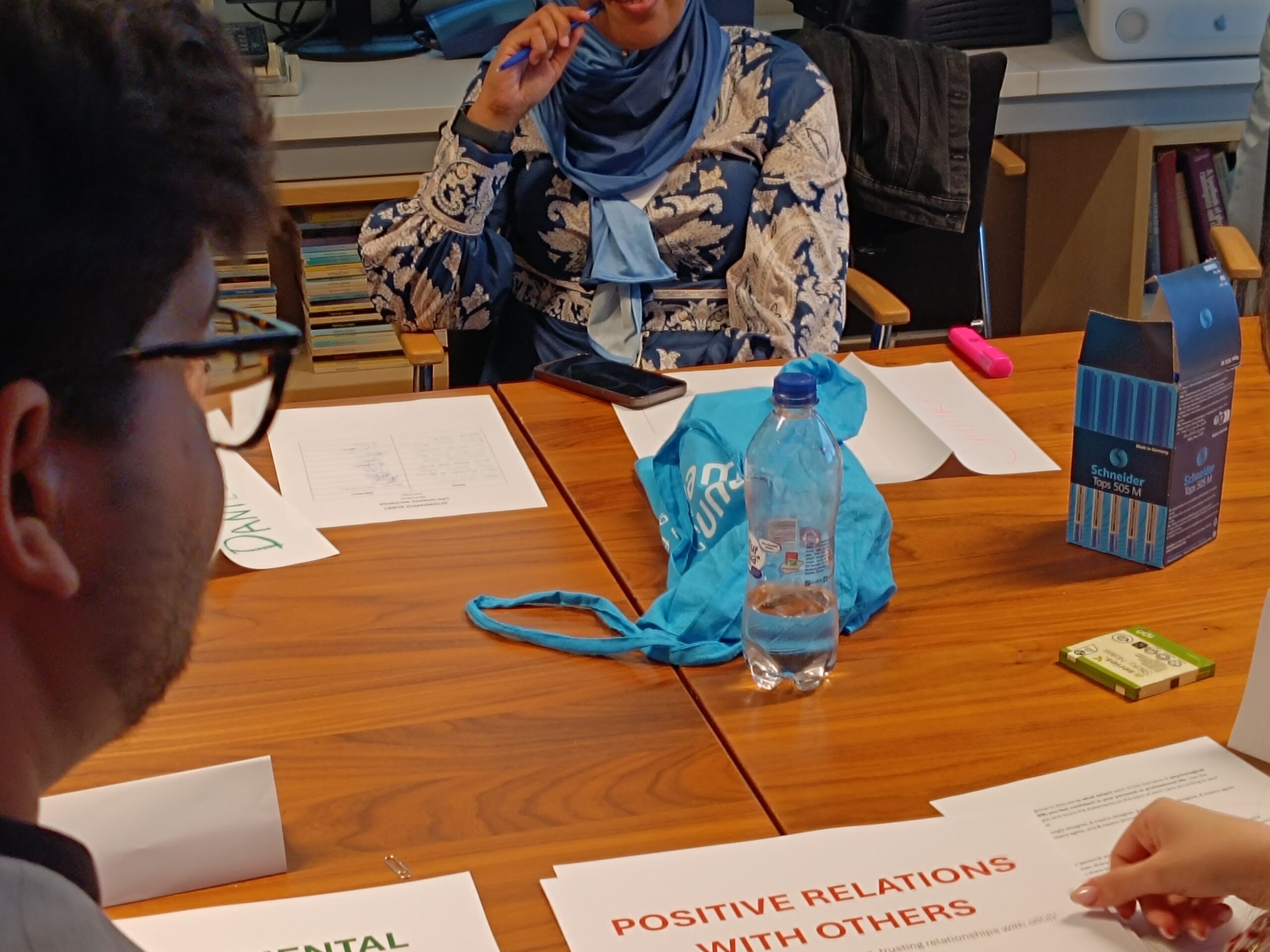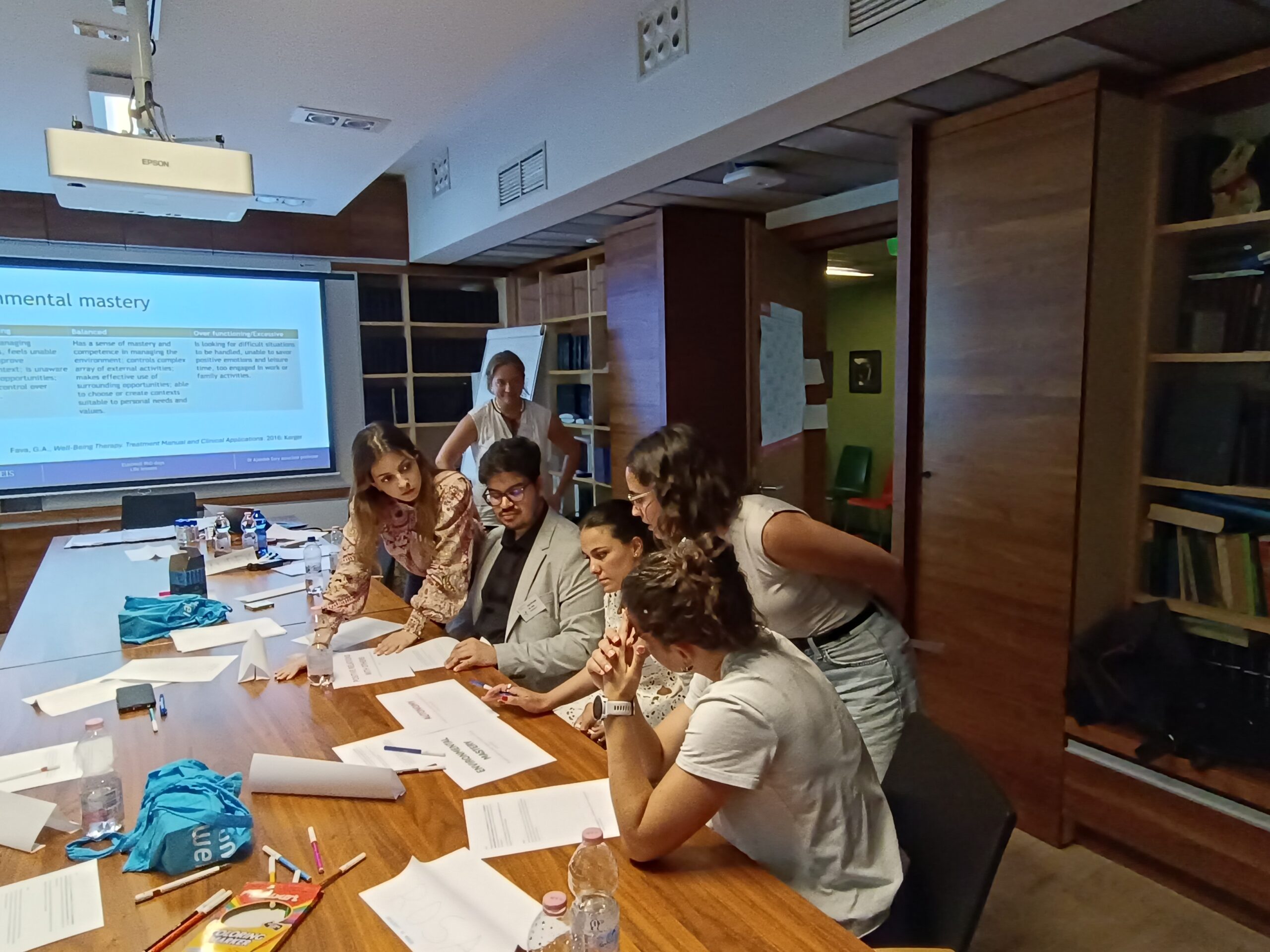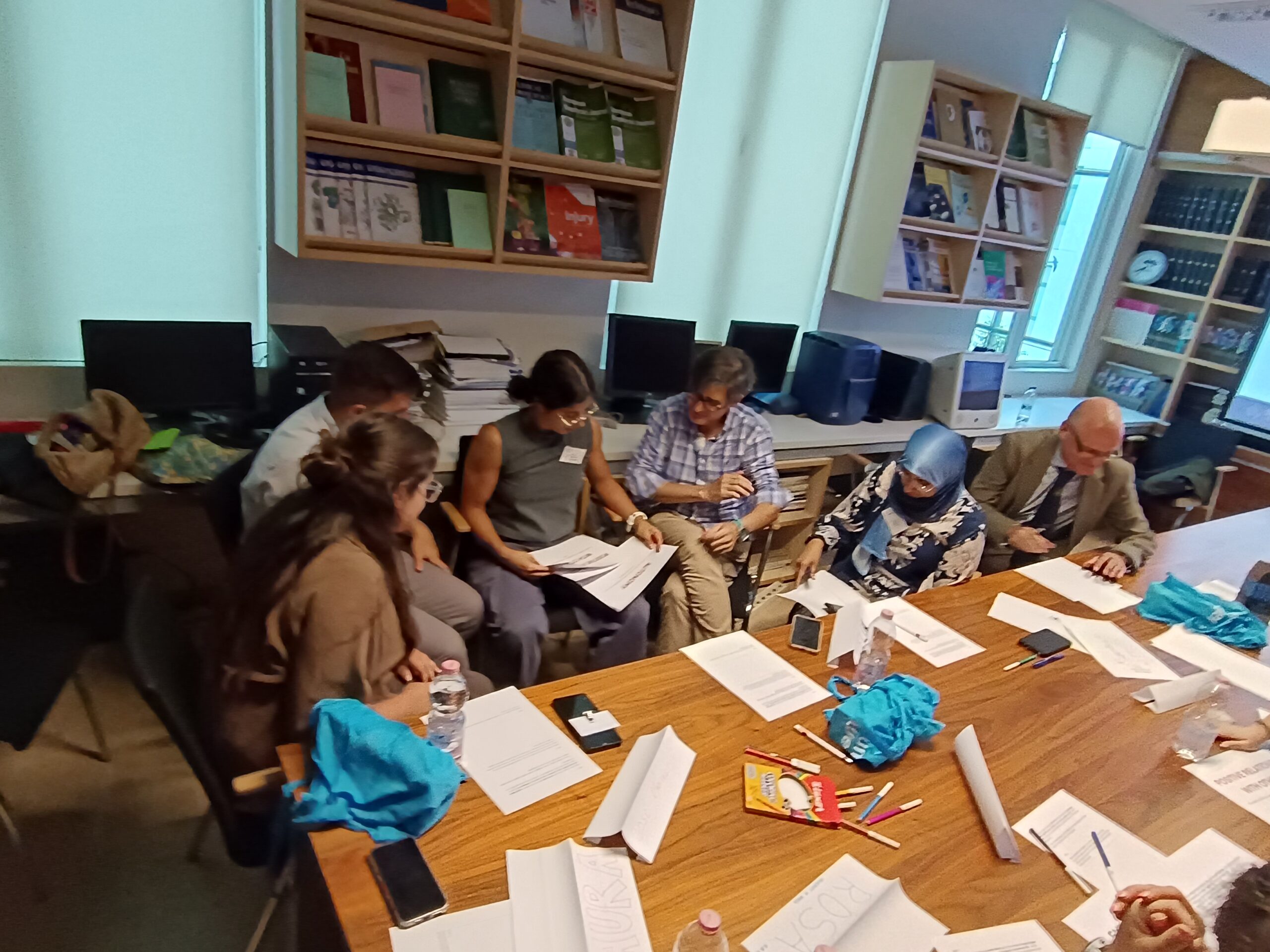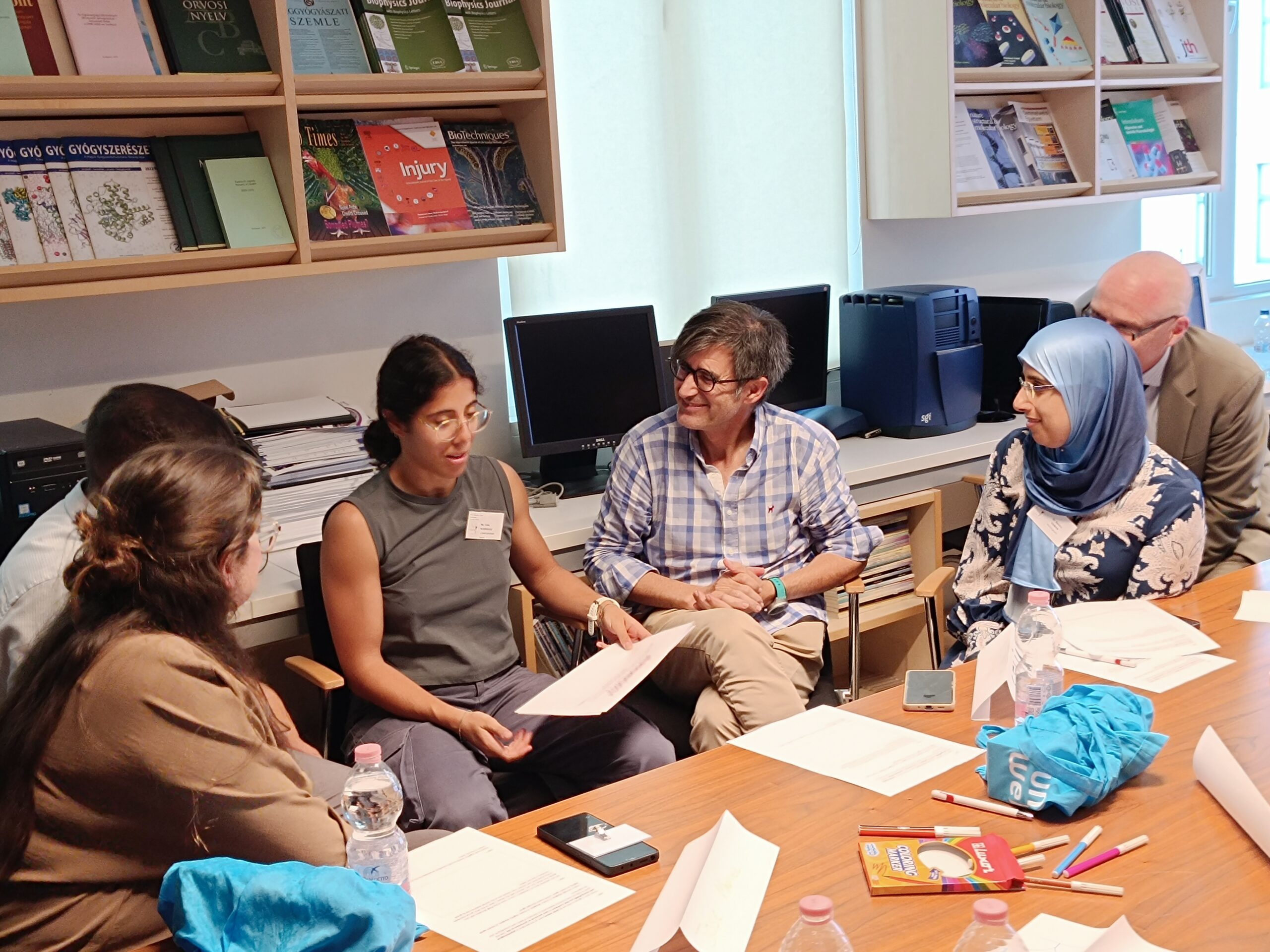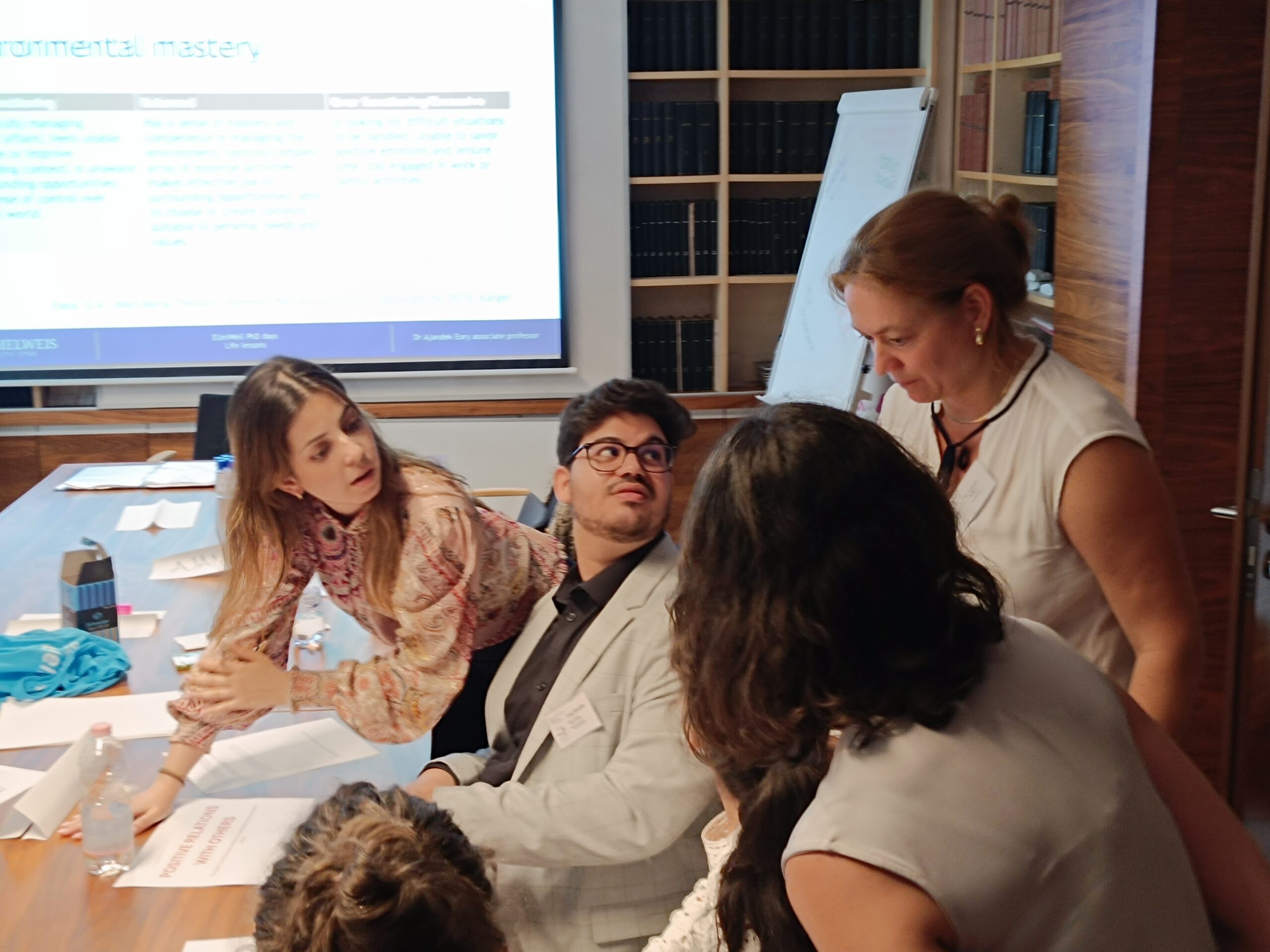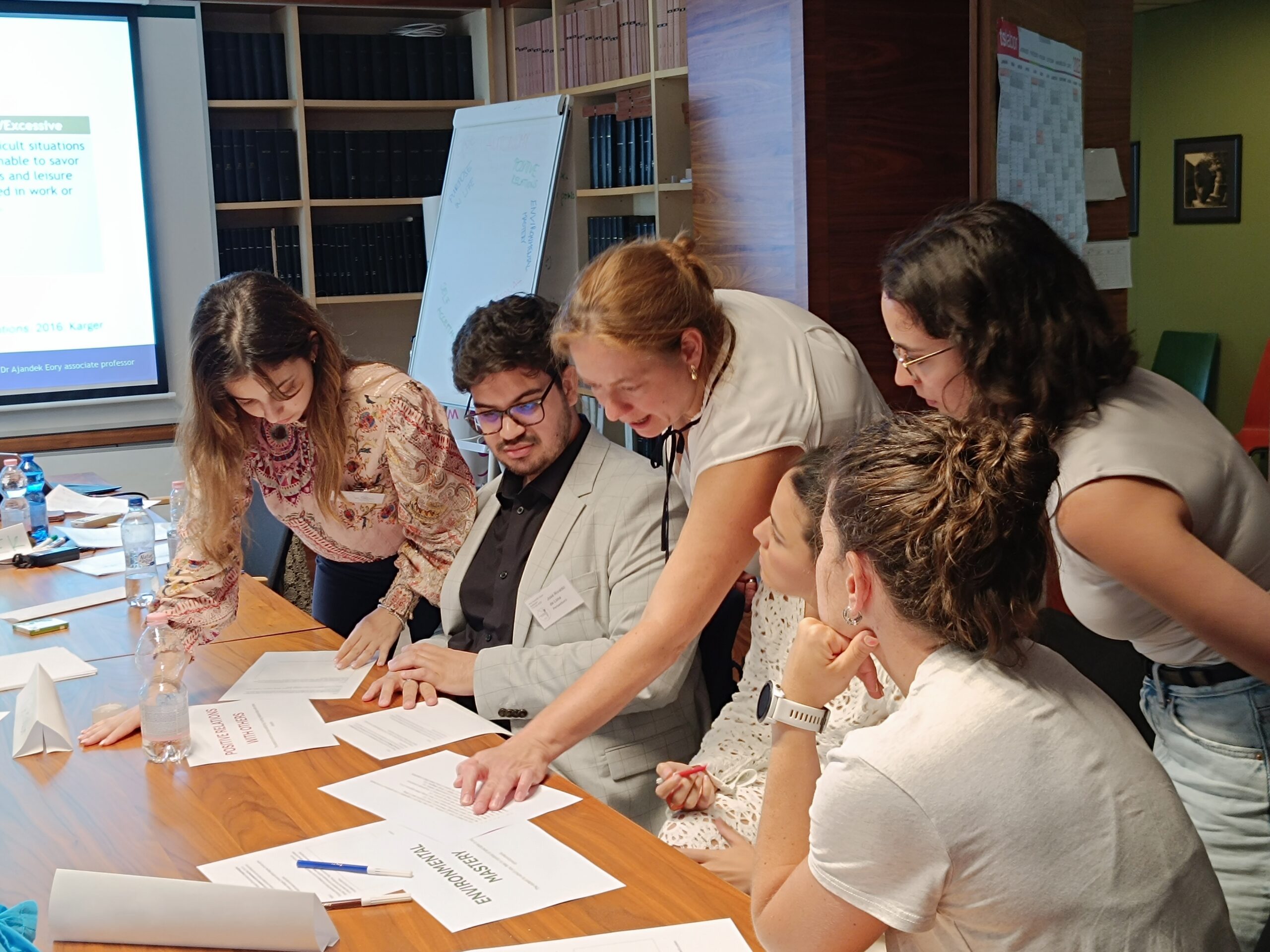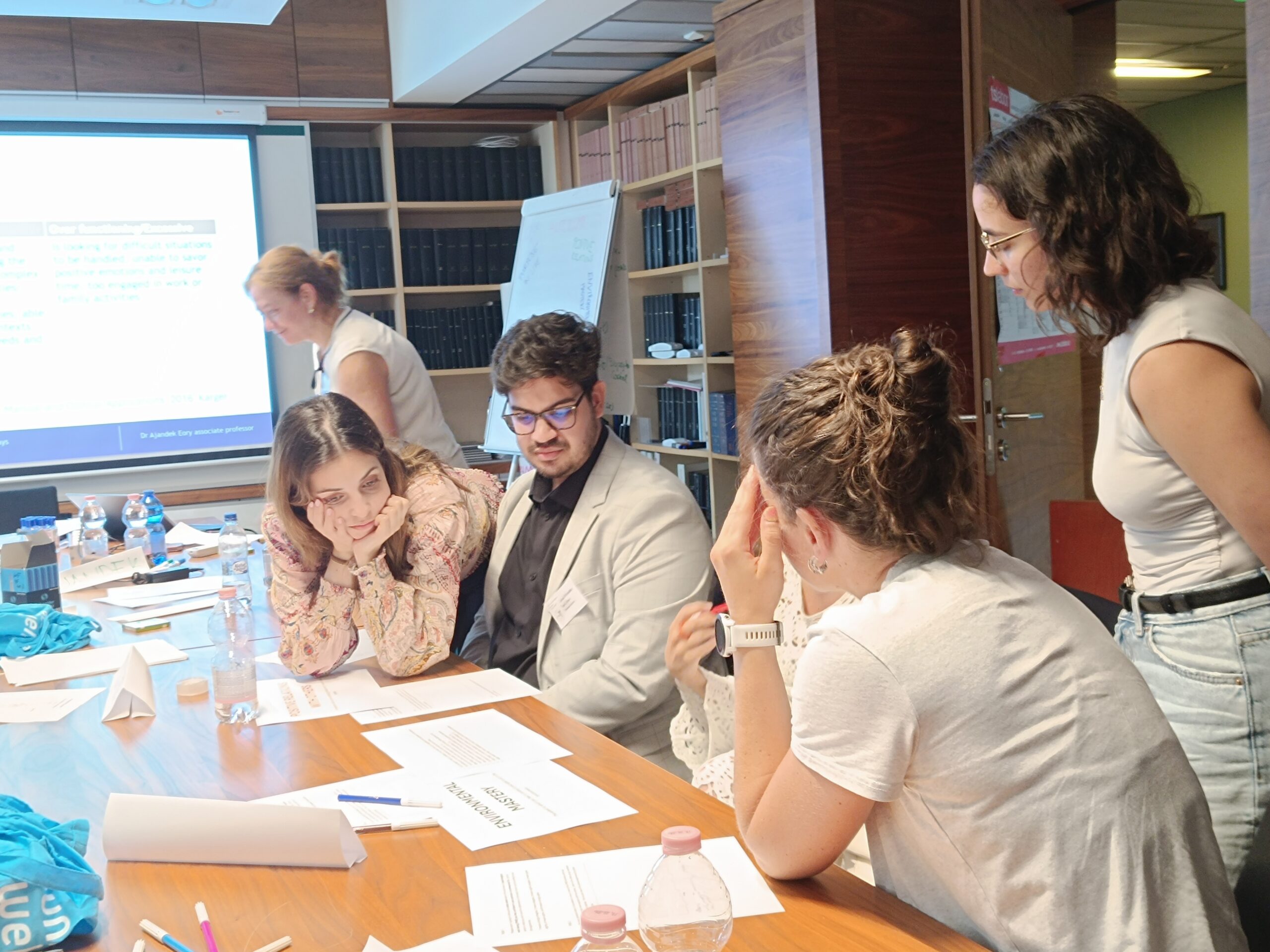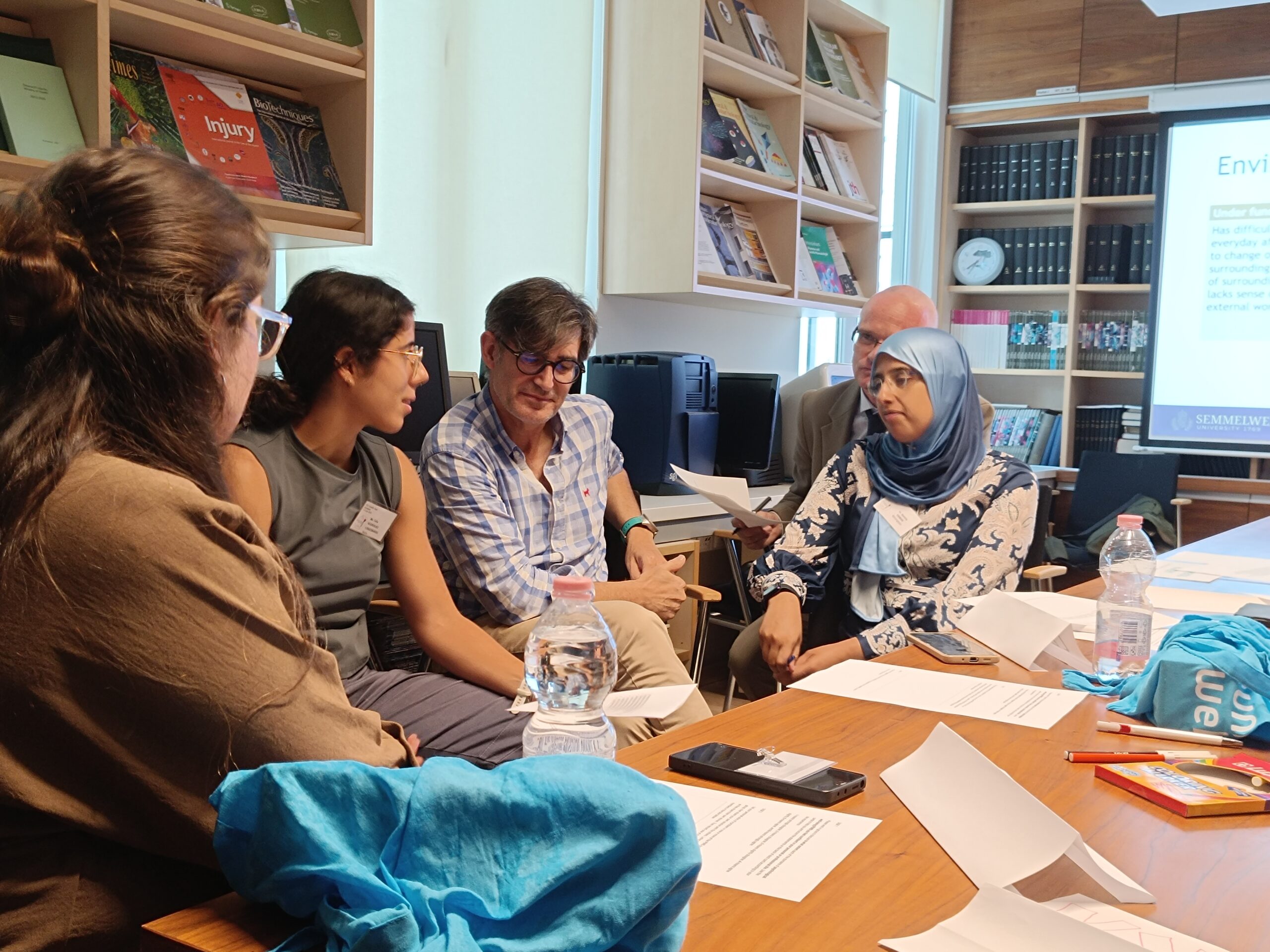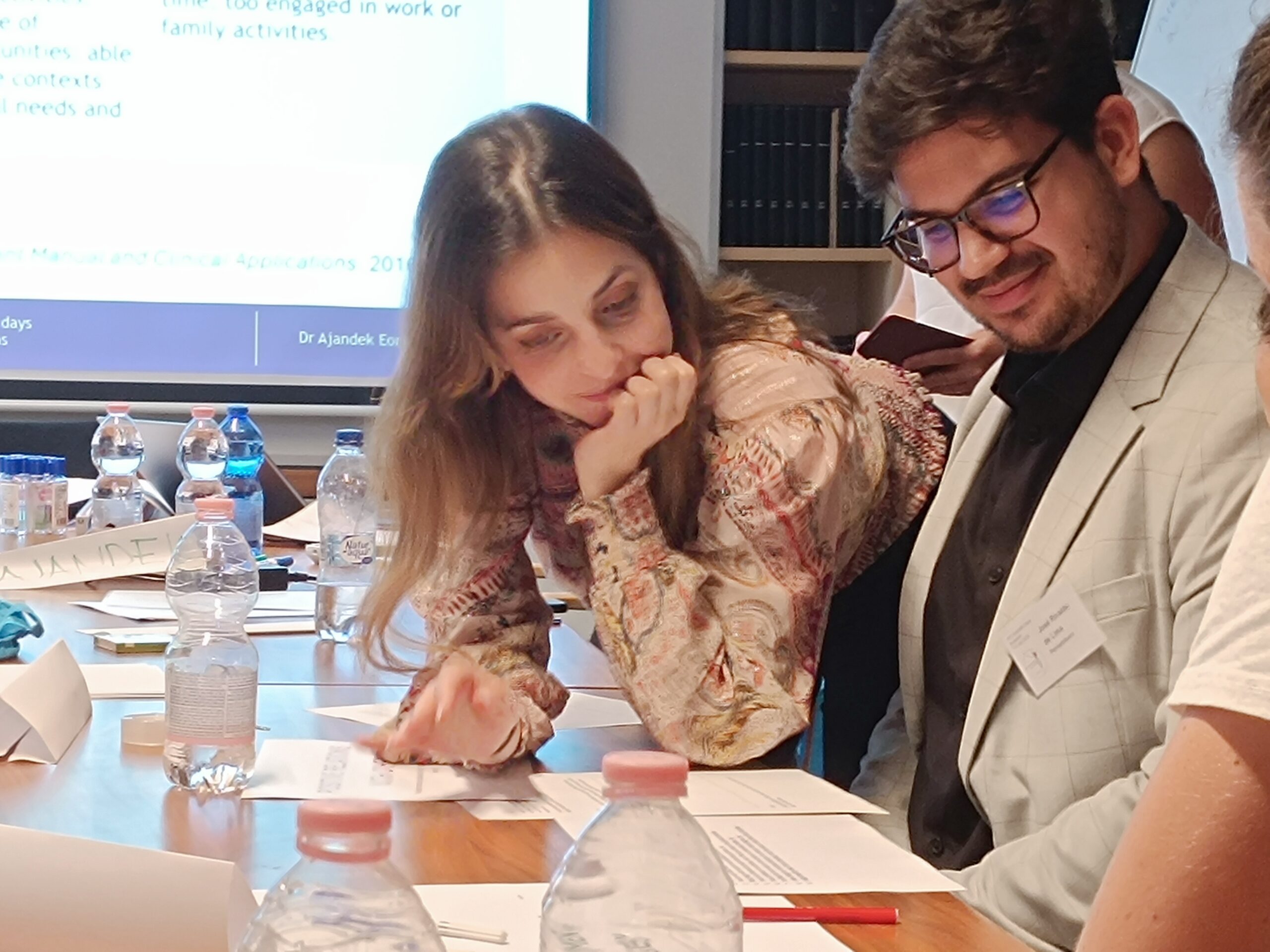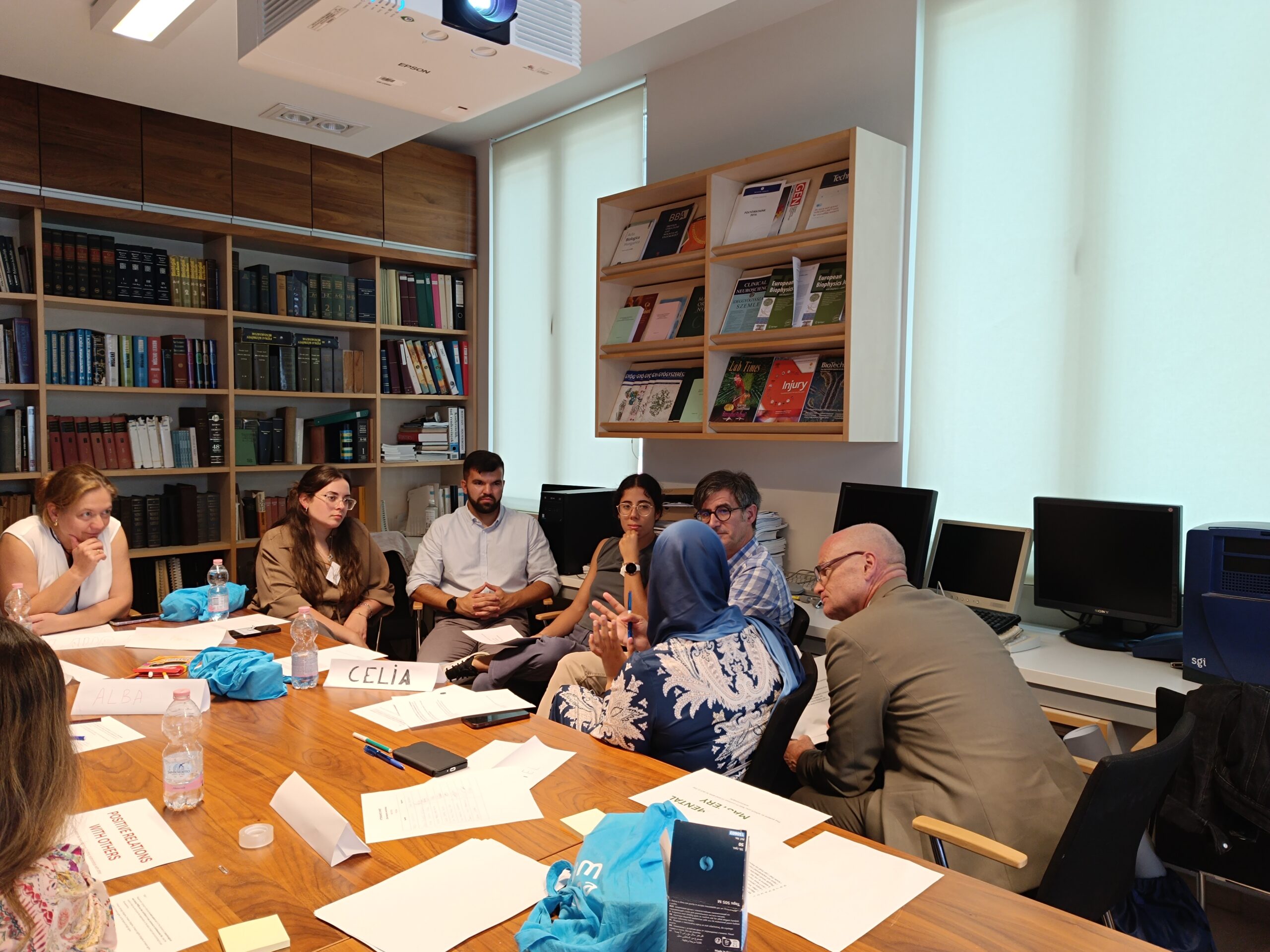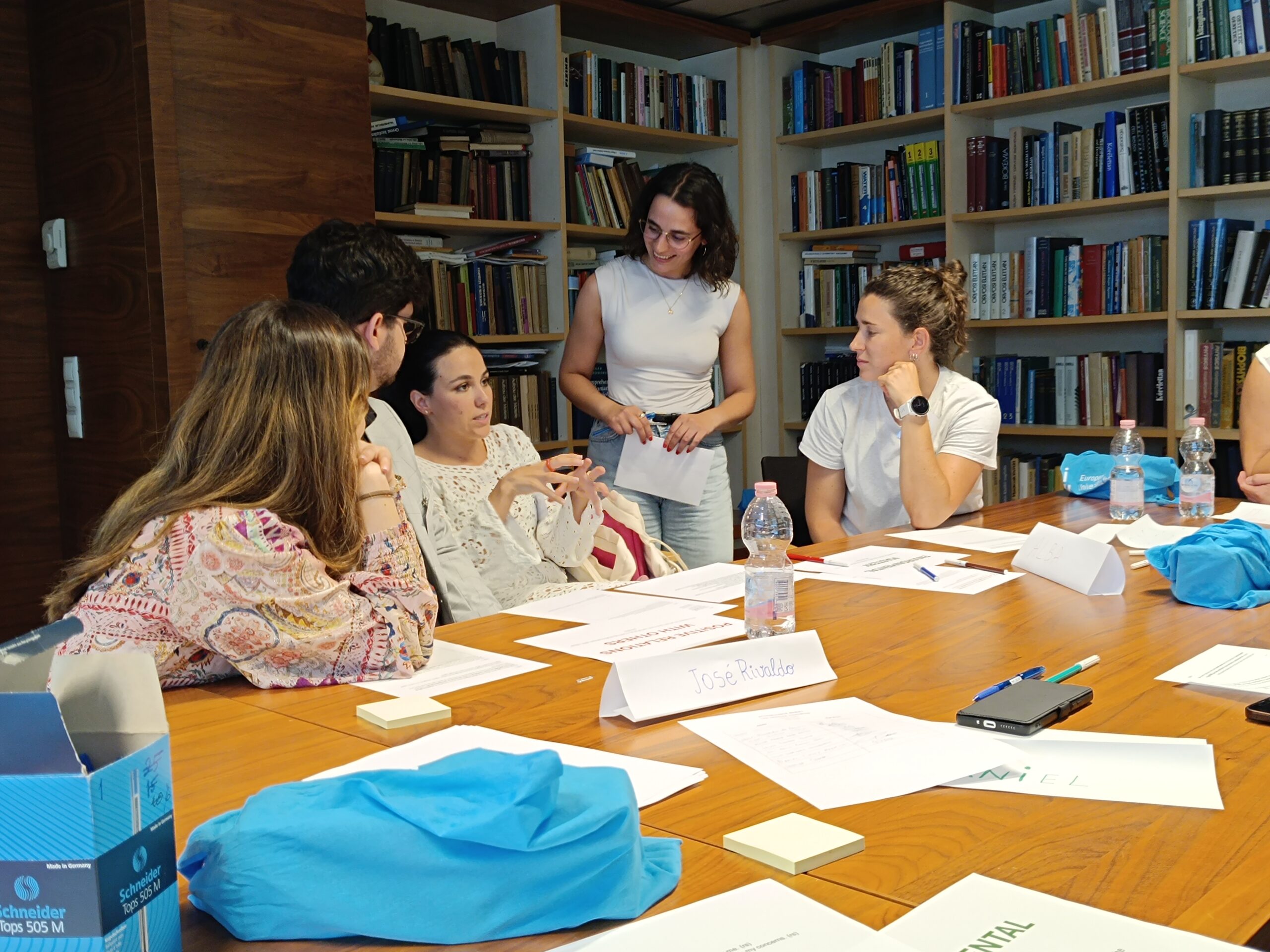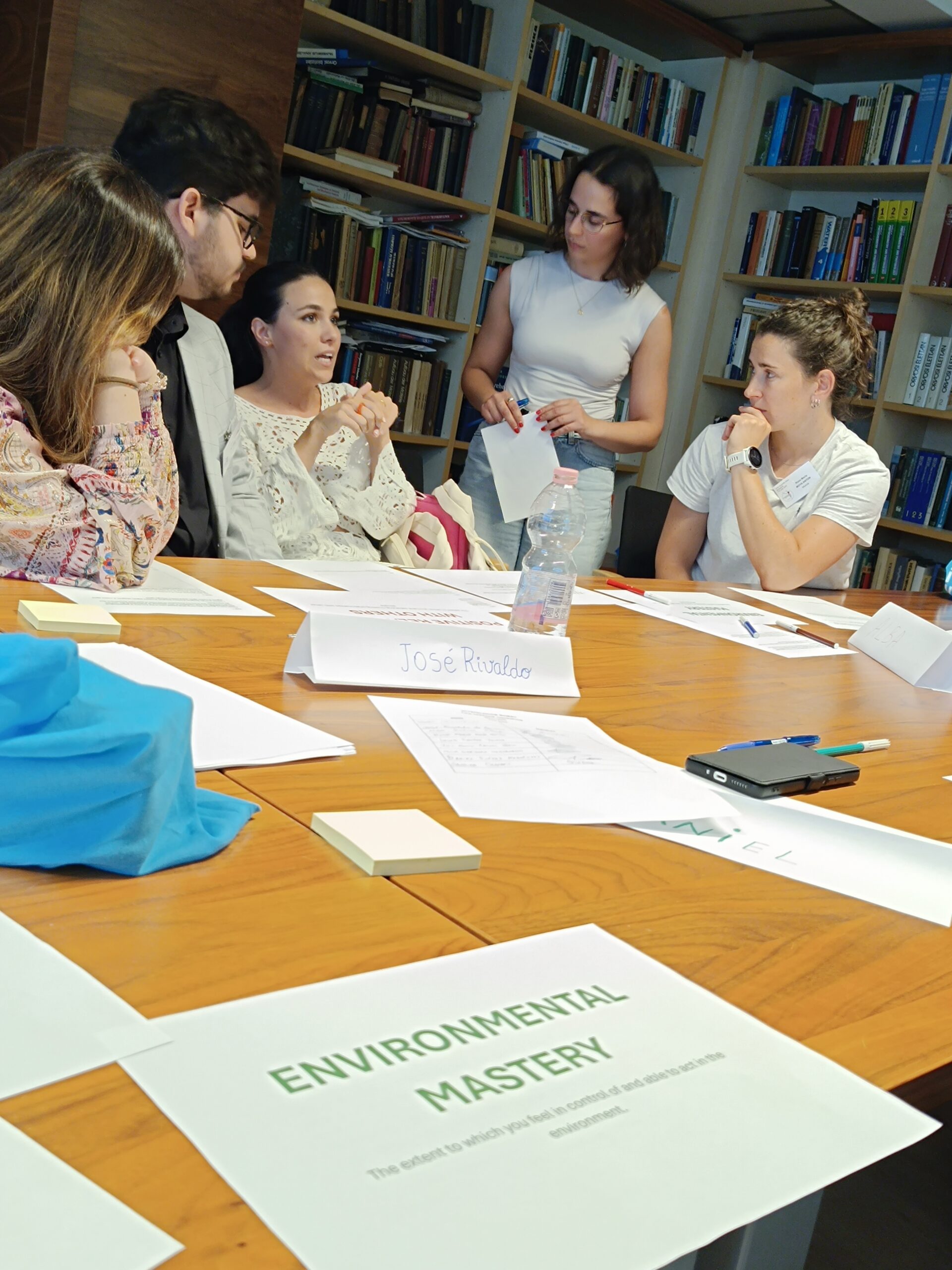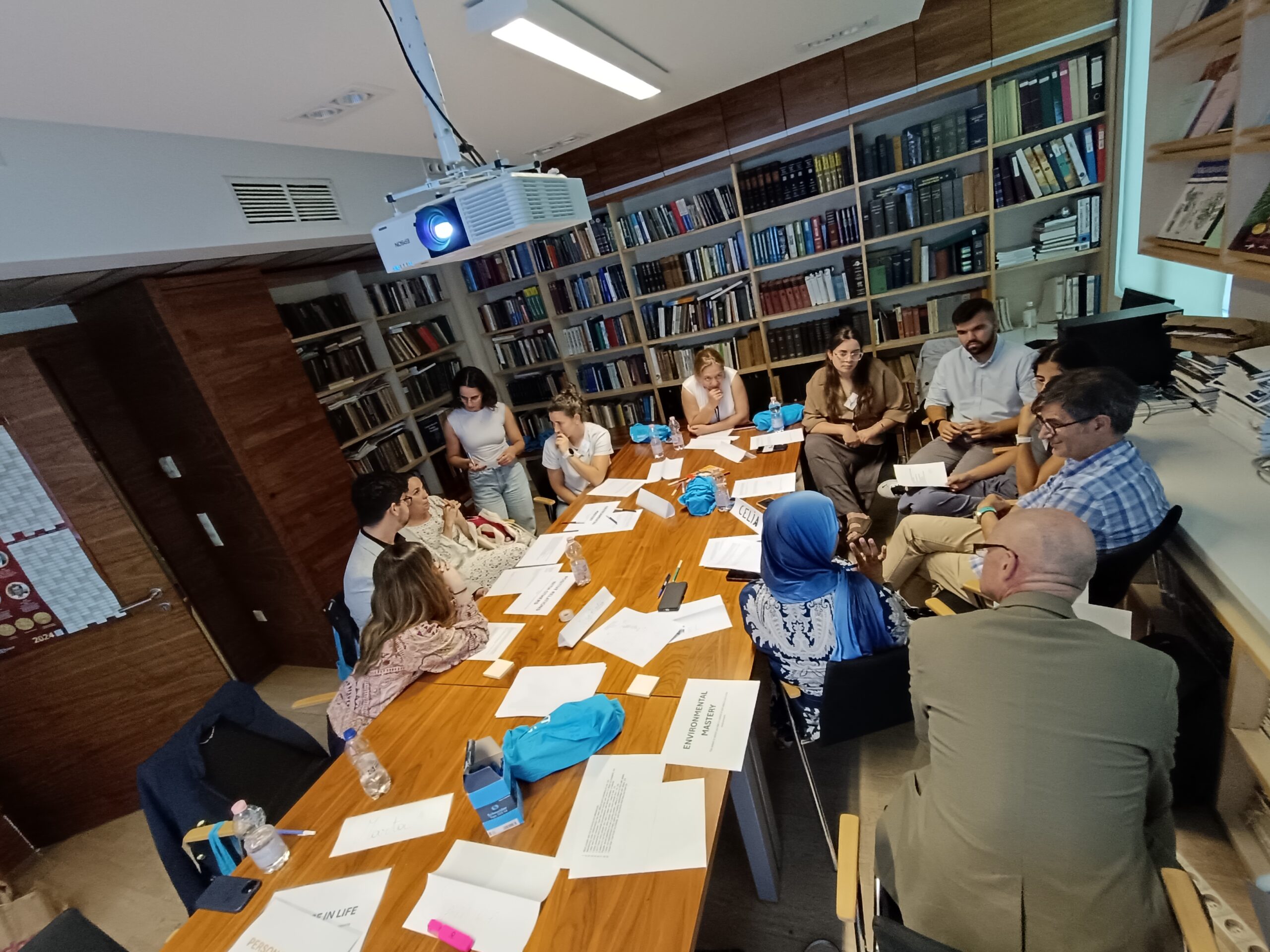On the 8th of July, EUniWell students and PhD researchers joined a hands-on workshop on resilience and well-being during the PhD Scientific Days at Semmelweis University. Titled “Life Lessons – Ways to Enhance Resilience in the Complexities and Challenges of Everyday Life,” the session offered a space to rethink resilience as a learnable skill rooted in self-awareness, personal values, and meaningful human connections.
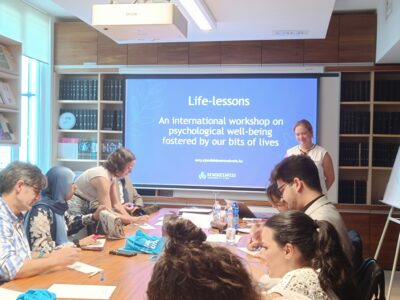
On the 8th of July, EUniWell students and PhD researchers attending the PhD Scientific Days at Semmelweis University had the opportunity to participate in a dedicated well-being workshop that was an official part of the EUniWell section of the event and offered a unique space for students to explore the concept of resilience.
The session began with a brief scientific overview on the role of our neuroendocrine regulatory systems in maintaining internal balance. Participants learned how the challenges of everyday life—especially when prolonged or emotionally charged—can destabilise these systems, ultimately increasing the risk of developing chronic illness. This understanding laid the foundation for a deeper inquiry into personal resilience and its relationship to long-term well-being.
Through guided small group work, students were invited to reflect on their own life experiences and examine how well-being can be sustained by consciously strengthening different domains of personal health. Facilitated by trained moderators, the discussions focused on identifying inner resources, recognising patterns of stress, and exploring new strategies to restore and maintain balance.
One of the key messages of the workshop was that health cannot be defined solely by the absence of disease. Particularly within the healthcare sector, there is a tendency to frame health only in negative terms—focusing on what is broken or missing. Yet true health is not just about surviving; it’s about thriving. It involves living in alignment with one’s values, exercising autonomy, embracing personal growth, accepting oneself, and nurturing supportive relationships. These pillars of well-being are not fixed assets, but areas we can actively develop and strengthen over time.
Drawing on prior research, participants learned that among university students, personal growth, sense of purpose, and social support tend to be the strongest well-being dimensions. On the other hand, domains such as autonomy, self-acceptance, and mastery of life situations often score lower—highlighting critical areas for development.
The workshop offered more than just personal insight—it provided the transformative experience of peer connection. Participants found that the struggles they once thought were uniquely theirs were, in fact, widely shared. Hearing others’ coping strategies not only expanded their own emotional toolbox, but also helped foster a sense of solidarity, normalisation, and mutual support.
The session concluded with each group presenting the resilience strategies they had co-created—highlighting the diversity of perspectives within the EUniWell student community. Beyond individual learning, the workshop also played a powerful role in community-building, strengthening cross-disciplinary dialogue and supporting the emergence of well-being-focused collaborations across the alliance.
The session was led by Dr. Ajándék Eőry, Associate Professor at the Department of Family Medicine and Head of the Integrative Medicine Unit at Semmelweis University, Secretary of the International College of Psychosomatic Medicine. She is a licensed trainer of the Academy of Well-Being Therapy. The group work was facilitated by Paul Morgan, lecturer at ELTE’s MA Program in Translation and Interpreting, and Zsófia Pintér, professional interpreter and translator.
The event was funded by NRDI Fund from the National, Research, Development and Innovation Office.
